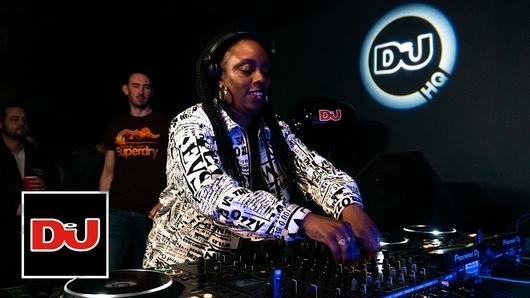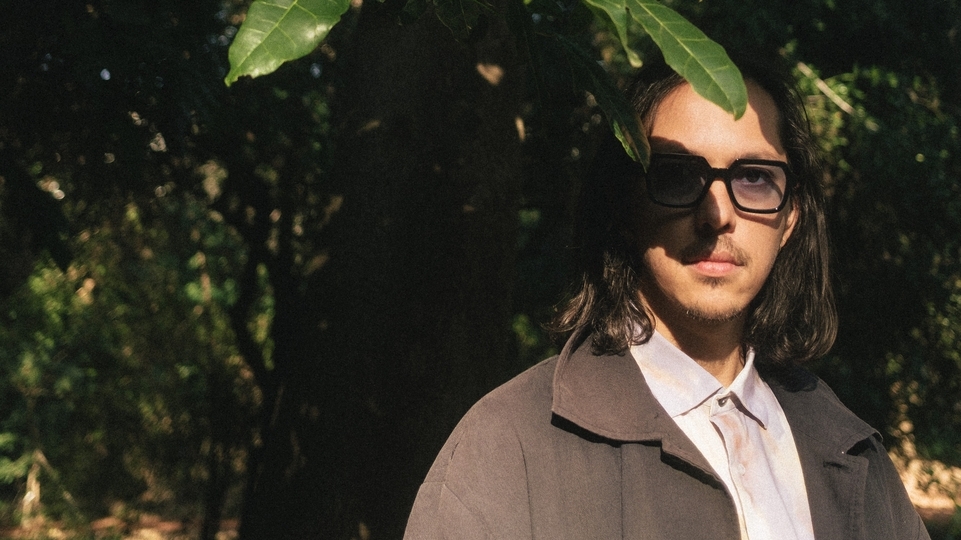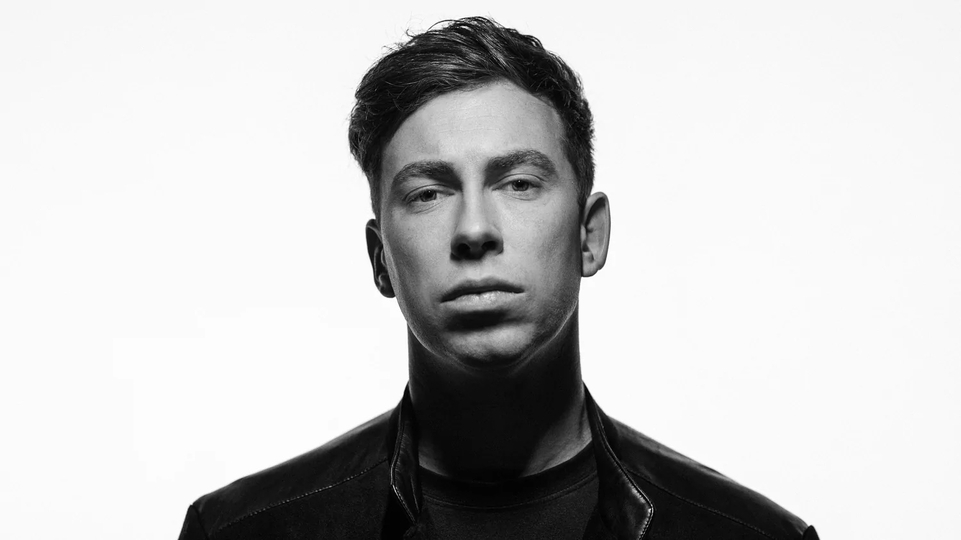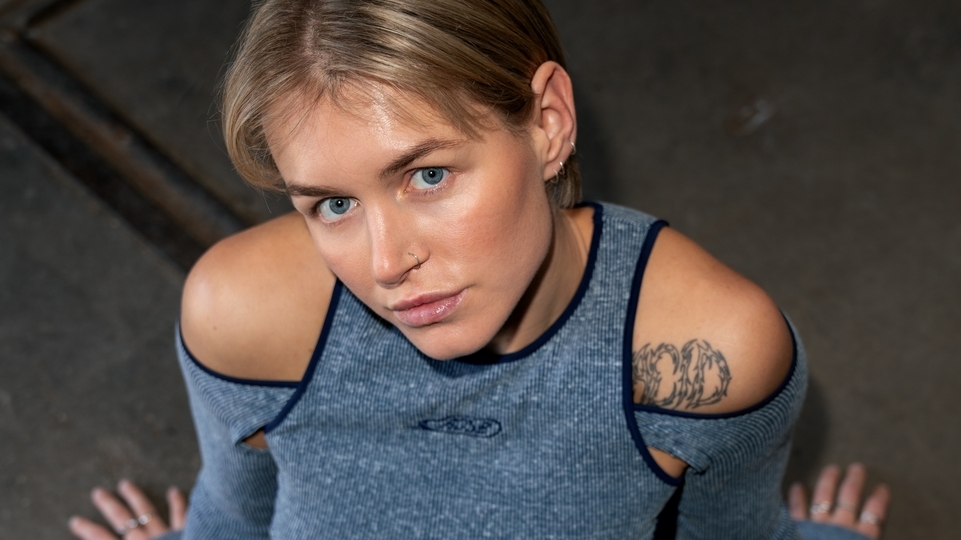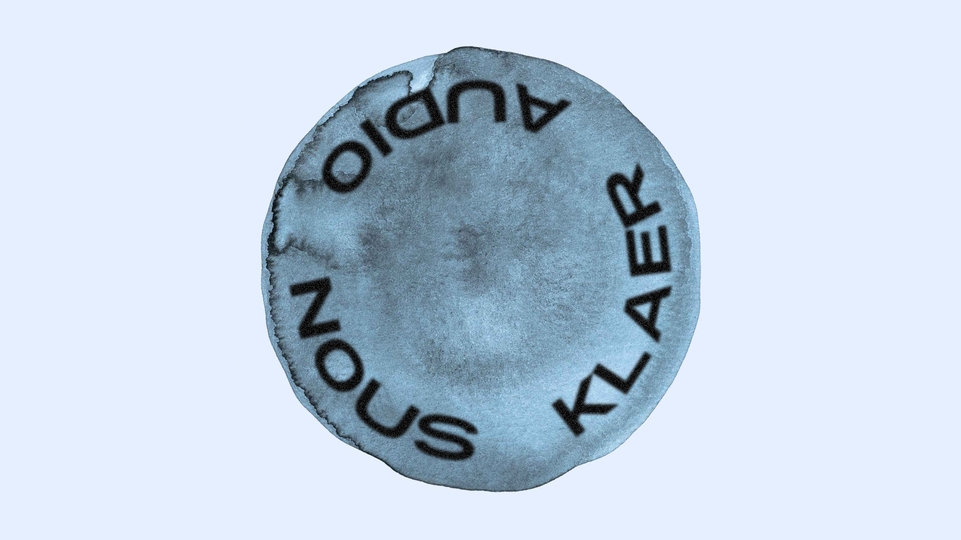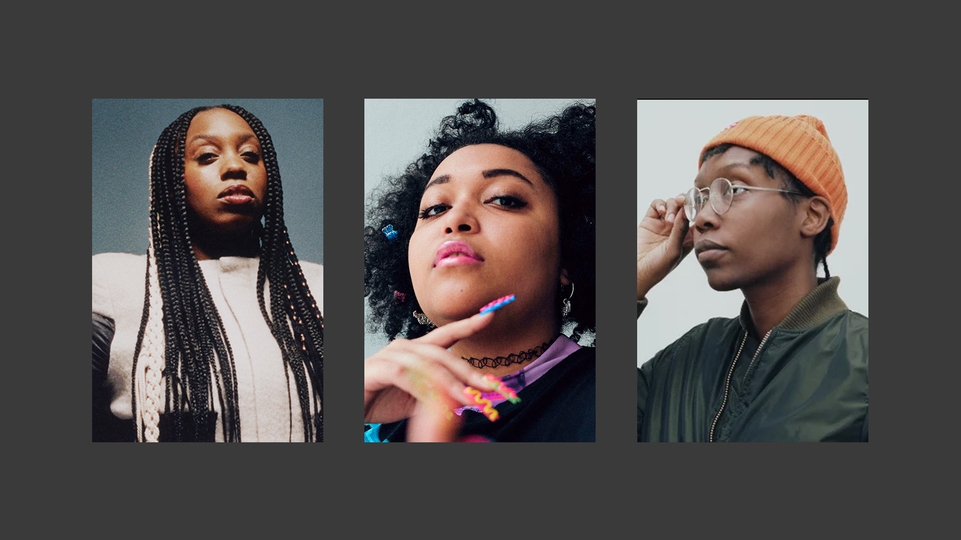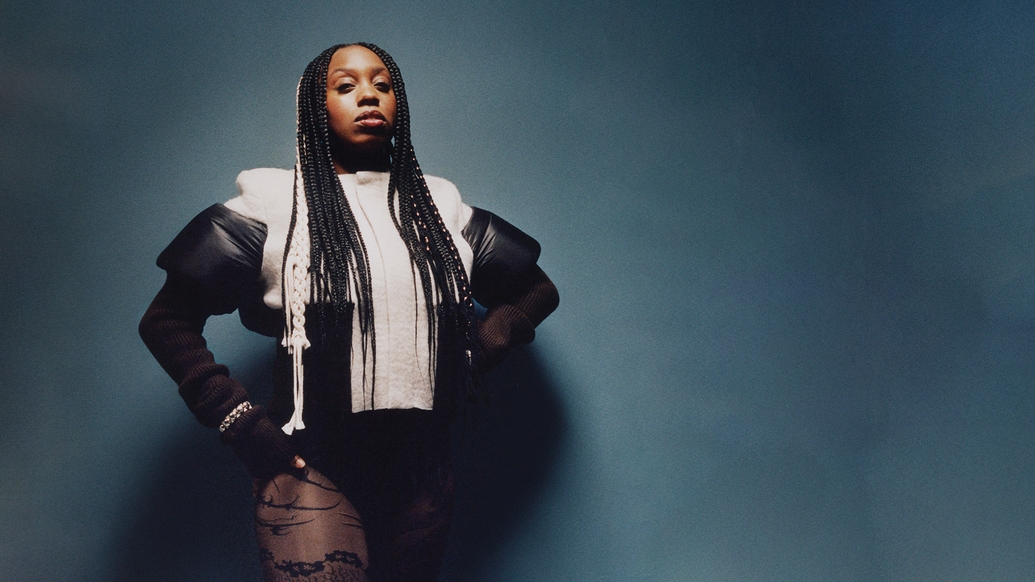
CARISTA: unifying the dancefloor
Utrecht's CARISTA is on a quest to bring club crowds together with her irresistible, energising DJ sets. Ria Hylton meets her to find out how her United Identities label is elevating new talent in the Netherlands, and how she’s branching into new areas of music.
No story of CARISTA would be complete without a recap of that 2018 Boiler Room X Dekmantel set, the one where she transformed a crowd of friendly strangers into a flock of true believers. Opening with Italo house classic ‘Calypso Of House’, blending into broken beat and weighty four-four, she dropped Dam Swindle’s ‘Call Of The Wild’, a horn-laden dancefloor burner — and a star was born. But there’s so much more to this DJ, real name Carista Eendragt, and it’s a point she makes clear at the beginning of our initial call. “Some interviews have been really focused on the past, which is ok, but I kinda felt like I was repeating myself every single time,” she tells DJ Mag. “And maybe that’s the reason why I don’t do interviews that often anymore.”
Luckily, we’ve caught CARISTA at another focal moment, with an EP drop on her United Identities imprint and brand collaborations, such as A-COLD-WALL*, already locked in for 2024. There’s also talk of a soundtrack release of the music she scored for a theatre production earlier in the year. As she talks us through her week ahead, we start to sense that she lives a life of all systems go, in a constant state of motion, readying for the next thing. In early December, she’s gearing up for an eight-hour set in São Paulo, followed by pit stops in London and Lisbon, before debuting at New York’s Nowadays. She has a friend coming round later too, so we race through our initial talking points, scheduling a follow up chat down the line.
When we spot the DJ a week later, she’s leaning on a bollard outside at our meeting point in Shoreditch. She peers up from her phone, smiles and leads us to an all-day dining restaurant for our second interview. “I became an aunt today,” she shares some hours and a glass of wine later. “My family is super important to me — my mum and two sisters. They are not part of this whole scene, but when it comes to making decisions, they know me best and their objective opinion means a lot to me.”
We identify four key moments in the CARISTA timeline, all of which took place at three-year intervals. In 2012 she won a mixtape competition and landed her first DJ set at Rotterdam’s BIRD; in 2015 she became a resident at Amsterdam’s Red Light Radio, launching the broadcasting strand of her career; 2018’s Boiler Room won her legions of fans abroad; and in 2021 she was awarded the Gieskes-Strijbis Podiumprijs, the Netherlands’ most generous performing arts prize, for her contributions to dance music culture.
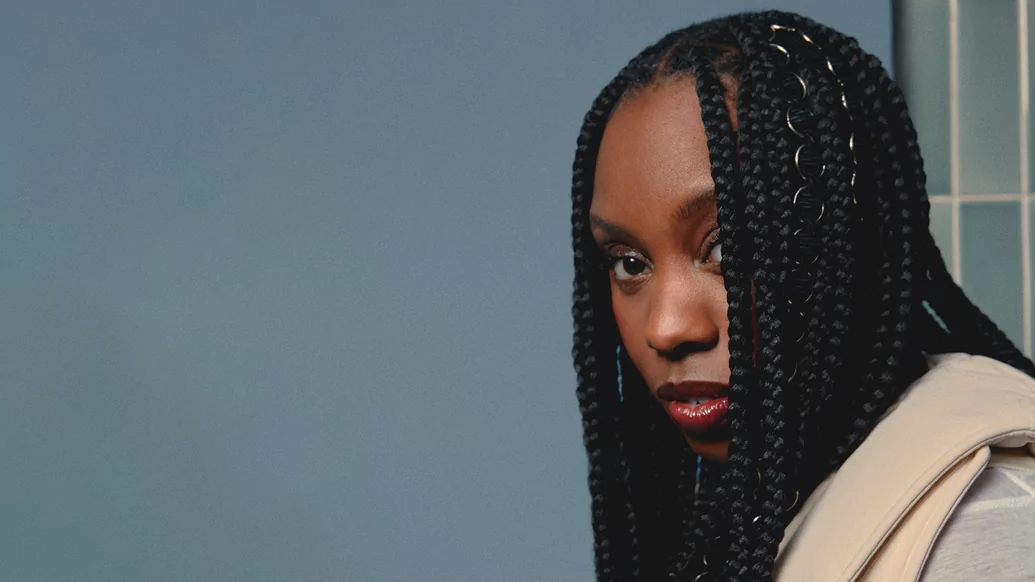
“I wanted to do something new, something challenging. The theatre is a whole different field, you know?”
CARISTA has been shining a light on local artists and forging links between different musical worlds, for the best part of a decade. And much of this has been through United Identities, a platform she founded in 2017. “I have a small team who believe in the vision and understand that it’s bigger than me and what I have in mind,” she says when we ask about the United Identities ethos. “I’m just like you know, I have this label, if you want to dive into it you can dive into it.” Focusing on Netherlands-based artists, United Identities has released work spanning soulful rock, downtempo EBM, electro and classic club. This localised take on global sounds, where jazz collectives can co-mingle with old-skool techno and forward-facing electro producers, is a rare thing for the Dutch scene, something the Gieskes-Strijbis jury noted. CARISTA still doesn’t know who nominated her for the prize, but she’s thankful for the win. “We are doing something totally different in the Netherlands,” she says, “and I’m grateful for the confirmation from beyond the scene — I didn’t know that they knew that I existed.”
Before United Identities CARISTA was working her way through the ranks, curating radio sets for easy, at-home-listening, as well as those high-energy, peak-time slots. To date, she’s played most of Europe’s key club venues — fabric, DC-10, Lux Fragil, Berghain — as well as some of the best curated festivals, and her United Identities ADE (Amsterdam Dance Event) nights have become a staple in the event’s calendar. But lately the producer has been on the lookout for creative projects beyond the booth, and last year she was approached to score a production for Amsterdam’s Kobra Theatre. The timing was perfect. “I wanted to do something new, something challenging,” she tells DJ Mag. “The theatre is a whole different field, you know? With DJing and touring — I know how to move, but this was totally different. Half of my summer in 2023 was dedicated to the project, I was pretty active.”
‘De Smeekbede’ (The Supplication), based on a book by Lianne Damen and adapted by Maarten van Hinte, tells the true story of Dédé, an elderly woman born into slavery in 18th century Suriname. “Dédé was freed by her master and her master wrote a note that could also free her son, but it needed to get to the Netherlands — so the play’s about this letter that never arrived, because the boat to the Netherlands got hijacked by the English. It’s the story of a mother and the dedication and trauma that comes with manoeuvring as a Black woman in the world.”
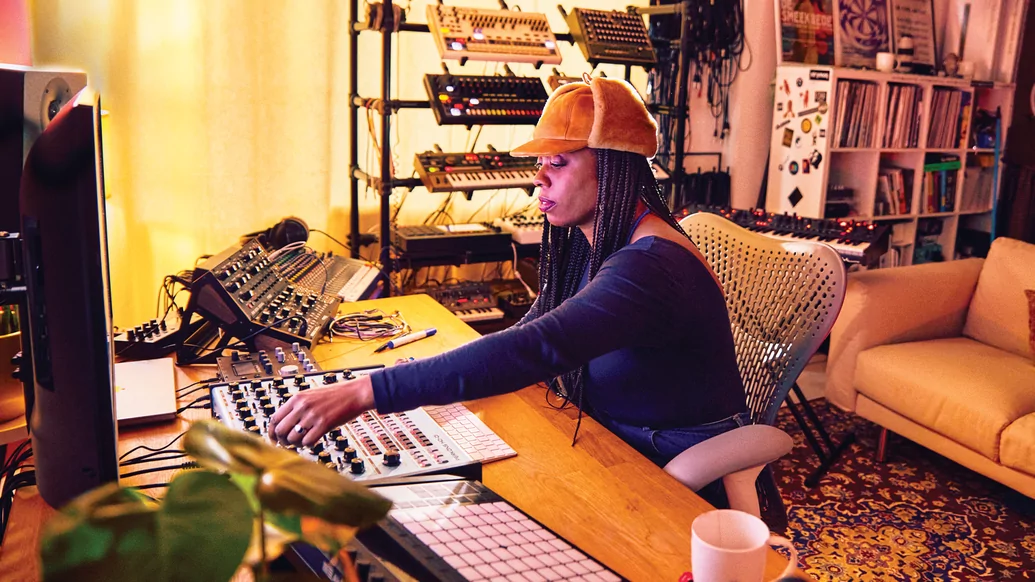
CARISTA was at Utrecht Centraal Station when she got the call from van Hinte, an old friend looking to collaborate again. “It was based on a very technical book and Maarten wanted to make it more musical, so the music was the throughline.” An in-person meeting with van Hinte and director, Olivier Diepenhorst, at the artist’s studio sealed the deal. “They told me about the musical direction they wanted to take and referenced artists from the Afrofuturist canon, like Drexciya, Ras G, King Britt, Afrodeutsche, Underground Resistance.” CARISTA sets often weave in the sci-fi, funk-leaning sounds of classic techno, so she felt immediately at home with the idea.
“I also had conversations with my mum about her mum and her time growing up in Suriname and the Netherlands, to understand how it might feel to live far away from family, anything I could do to try and translate these emotions into sounds.” She dedicated half of her summer to the project, slimming down her usual festival schedule to make rehearsals and slowly shape the score. “What I really liked is that there’s no real starting point with these things. Everything comes together slowly, because it’s a reaction to everything that’s come before — seeing how the actors respond to the music, taking time to reflect on the piece as a whole.”
CARISTA is a born collaborator. Having curated events for Utrecht’s Centraal Museum, appeared in Nike X Patta’s ‘Making Waves’ film shorts and joined forces with various fashion brands, it was only time that she fully crossed over into the performing arts. The rhythm of the work — studio jam sessions, rehearsals, revisions — as well as the collaboration involved, means this is unlikely to be her last production. “I would love to do more of this, 100 percent. It’s opening other doors in my mind,” she shares. “I’m often by myself, being ‘the boss’, but this time it was more about what ‘we’ think and what ‘we’ see, using all of our senses, the actors, director, the artistic team, and bringing all of that together.”
The contrast between the role of sound-lead on a theatre production and mainstage festival DJ was clear from the start, but she noticed many similarities. “The music wasn’t playing the upper hand of the story, it was more in service of the performance, and that’s also what I do with DJing,” she tells us. “Of course I play for myself — I need to like what I’m doing — but it’s about accentuating the atmosphere in the room, so in a way it’s the same.”
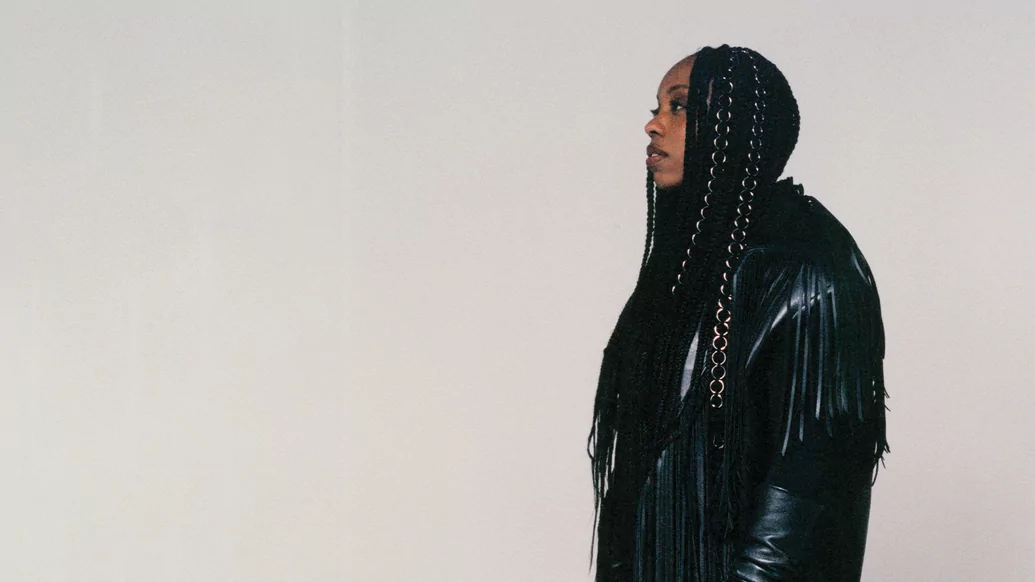
“There was this one pirate radio station in the Netherlands playing a lot of UK stuff, old-skool R&B, basically music I grew up on or felt connected to.”
Born to Surinamese parents and raised in Utrecht, CARISTA has her hometown name etched on the edge of her hand. Paramaribo, Suriname’s capital, is inked on the other. “Yeah I have lots of tattoos,” she says, revealing another around her wrist. “I like it, it’s kind of addictive — I always say, ‘this is the last one!’” She read law at university, more as a means to satisfy familial expectations, her mother’s in particular, before venturing into the working world. “My mum’s a teacher and was like, ‘get your degree, then you can do anything that you want’.” Though thin on the details following graduation, what she was really looking for was a creative life, preferably spent in the company of friends. “Friends were way more important than my school at the time, but now that I look back I’m happy I got that degree, especially now when I’m working with contracts, or even with my lawyer, and the way that I work is often very structured, but I can’t work in law or even for a boss anymore.”
CARISTA was clubbing and collecting music early on. Around the age of 18, she bought a two-channel classic Numark mixer, after a friend sold her two turntables, and started digging. Many of Utrecht’s record stores had closed down by this time, so she often ventured to Rotterdam and Amsterdam. “It was a really big deal for me to go digging at, for example, Rush Hour, so I went to all the record stores around it, like Distortion Records,” she says, “more low-key.” Early selections include hip-hop, broken beat, jazz funk and records from London’s Eglo Records and 2000Black, as well as Martyn’s 3024. She also found early watering holes in Utrecht, venues like Tivoli Oudegracht, Club Monza and Poema, but it was Strange Fruit, a club night in Rotterdam, where she came into contact with a future community.
The brainchild of Guido van Dieren and Lucky Dubz, Strange Fruit brought a wide range of acts to The Netherlands — Larry Heard, Theo Parrish, Benji B, Floating Points, Dam-Funk — merging sounds in a way other events in the city had yet to do. CARISTA would catch the train to see tastemakers like Flying Lotus and Belgium’s LeFtO, then crash at a friend’s place, or hop on the first connection back to Utrecht, energy permitting. “They were mixing everything — hip-hop, soul funk, electronic. At the time I thought, ‘this is super cool — I wanna be like them!’” Not that there weren’t other nights headed by the odd wide-ranging selector, but what was on offer lacked the same pull. “I didn’t feel comfortable enough to go [to them]. There was some kind of a bro code: you had to be either super cool, or have a friend who was part of it all. No, I didn’t go to those parties.”
She also tapped pirate stations for inspiration, stumbling on a whole world of sound she’d yet to come across. “There was this one pirate radio station in the Netherlands playing a lot of UK stuff, old-skool R&B, basically music I grew up on or felt connected to,” she explains. “I just turned this knob and came across this station, it had no name, but I listened to it every single day.” Those listening sessions put her on to artists and a scene abroad she would one day be at the heart of and soon enough she was connecting the dots between these mysterious tracks with the work of Alexander Nut, whose Just Jam Rinse FM mixes she discovered online — and became obsessed with. “I remember thinking: ‘ok, who is this guy?’ He was mixing everything. And from there I found Benji B and Gilles Peterson and I thought, ‘this is super cool’.”
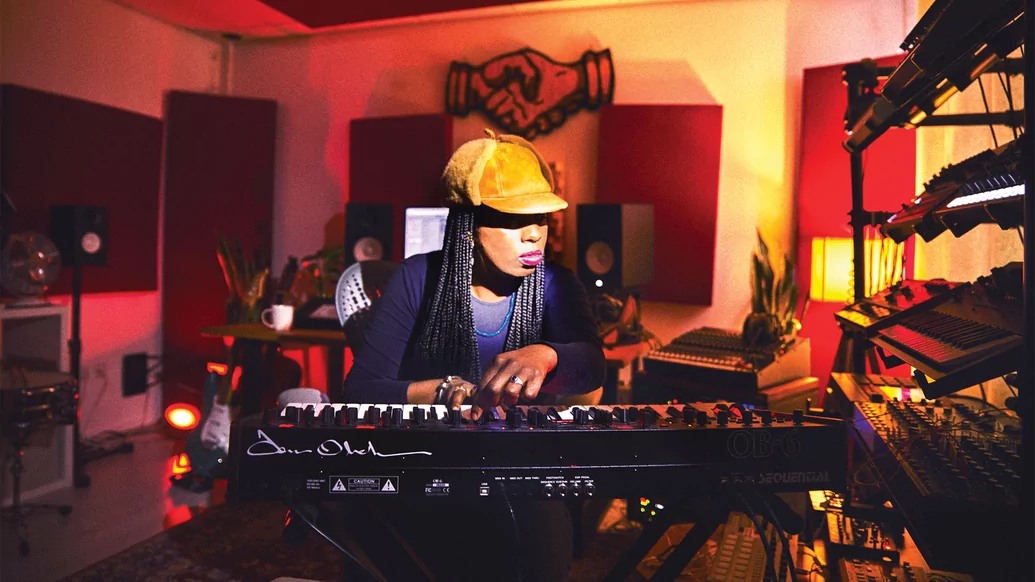
CARISTA was at home when she stumbled on her opportunity to DJ in public. It was 2012 and BIRD had posted a callout for budding selectors to enter its ‘Lost Files of 2011’ mixtape contest. The winner would secure a slot at the venue, as well as a pair of trainers. “I was on Facebook at the time and saw the programmer of BIRD put it online — I was like, ‘ok let’s try it’.” She won and played her first public gig that same night, landing a residency at the venue not long after. From there she slowly built a roster of regular gigs, but it would be a while before things started to take off.
The most enduring DJs seem to be able to read, elevate and teach their crowd all at the same time. Judging by the warm response CARISTA gets at her London The Cause gig hours after our meet, we’d put her in that category. In the early Sunday hours she spins ’90s-inspired cuts, infectious organ melodies over stomping four-four, soaring vocals over shuffling garage, slowly bridging towards funk-inflected techno. And she crafts peak moments throughout, buoying the crowd at times and forcing it to dance harder, much like in her Boiler Room set. Looking back at that 2018 Dekmantel performance, music selection and sharp transitions aside, what really stands out are her warm gestures — fist-bumps with the bros behind the booth, infectious smiles with dancers in front, and just the pure will to meet the crowd’s energy. She’d created a kind of dancefloor fellowship, where everyone was loose, locked in and safe to let go.
In 2015, just after her 27th birthday, the budding DJ put the feelers out for a slot at Red Light Radio, a community-run station in the heart of the Dam’s red light district. She penned an essay, a musical manifesto of sorts, listing the artists she was most inspired by and what she would play if given the chance to perform. The station replied within a day, offering her a slot at the end of the week. “I had no experience whatsoever, but what I learned is, you really never know who’s listening. Red Light had a webcam, so when Facebook was still cool and hip and happening,” she chuckles, “people would tune in, and those who followed me on my artist page could interact with me. But it was more about the freedom of selection that you have with radio. It was the only outlet where people could see and hear that I’ve done my homework and was serious about this.” She ended up with a residency there for just shy of five years, right up until it closed.
2017 was another formative year, where CARISTA began her De School residency and NTS show. Her love of UK sounds also landed her at one of Steven Julien’s Apron parties in East London, bringing her into contact with a number of DJs she remains in contact with till this day. “Ruby Savage, the Touching Bass crew, Steven Julien, Molinaro — I met a group of people that night, and later on, every time I went to London for my monthly NTS show, I’d see what they were up to and join. It was like a warm bath. It was a super cool period in my life where I met so many people working in music, as well as outside the scene.”
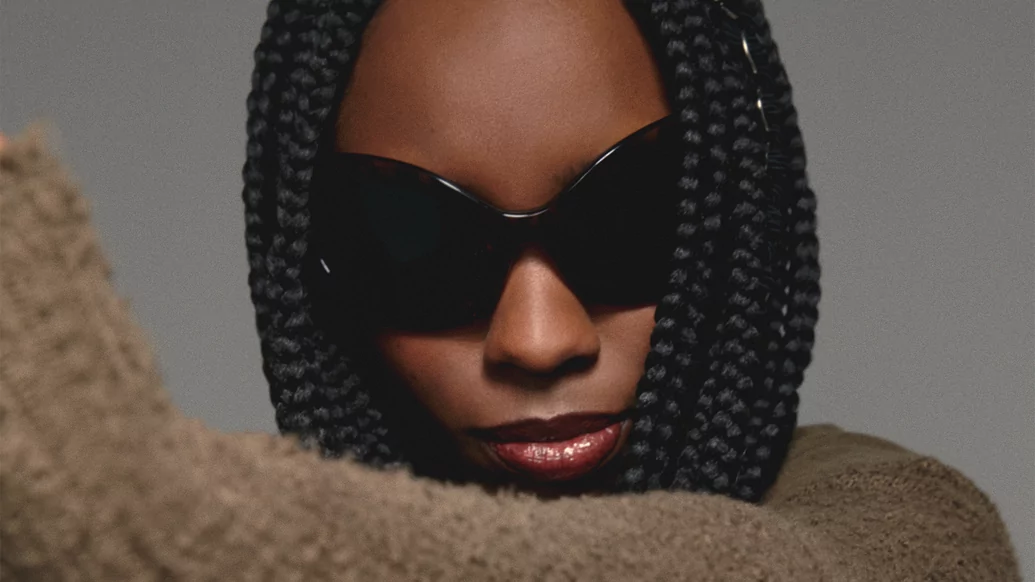
“I feel like I come from a family of such strong and confident women, maybe because they had to be when they were younger.”
By early 2018, CARISTA was a familiar face. Her Red Light Radio and NTS shows were in full swing and she’d bagged a number of residencies. But she was also facing a burnout. Working 9-5 in various jobs alongside an increasingly busy weekend schedule were taking their toll, so much so, at times she was too ill to keep up. She had to make a decision: “do I hold on to this steady work life, or do I take the risk and go for the music, 100%?” A passing comment from her mum made up her mind. “My mum noticed I was getting sick and that I wanted to do so many things at the same time,” she explains. “She noticed something was happening for me. She said — I know, super cliche — but yeah, ‘follow your heart’. And I was like, ‘what?!?! Are you sure?’” She handed in her notice in March, laid low for the month of April, and played her first Lente Kabinet festival in May, a downtempo, Soulection-leaning three hours in the sun. Byron The Aquarius was seen grooving along to the set, all the affirmation she’d need.
Dekmantel invited CARISTA back to play the mainstage in 2019, ahead of Róisín Murphy. Her mum and sisters joined her this time round and there were a few surprises. “My mum was super proud — when I was playing I saw her enjoying it so much that at one point she took off her cardigan and —” at this point CARISTA lassoes an imaginary cardigan above her head and bursts out laughing. “She was my hype woman!” The topic of family comes up a few times in conversation and it seems a strong work ethic and clarity of perspective were values passed down. “My mum always said, ‘you need to work hard for everything you do’,” she shares. “I feel like I come from a family of such strong and confident women, maybe because they had to be when they were younger.”
CARISTA’s 2020 schedule was looking busy: her BBC Radio 1 Essential Mix, which would be shortlisted for the Essential Mix Of The Year and bag her a six-month BBC Radio 1 residency, dropped in February, she announced her debut Australia and New Zealand tour, and was planning another United Identities event for March. But when Covid hit and the world went into lockdown, she made a quick pivot. “I was like ‘what shall I do? Well I have a label, right?’” She smiles a broad smile. “Let’s launch a compilation.”
United Identities was born out of a conversation with a friend at the time, following CARISTA’s 2016 Lowlands set. She played the Haciënda tent, which began to pack out as ravers sought shelter from the rain, adding to the moment. “I was super nervous, looking out at the crowd,” she remembers, as more and more flocked in. “It got massively busy, really full, and I was like ‘what the — what’s going on?’” She played for 90 minutes and was cheered by a crew of friends when she jumped off. “One friend was like: ‘what the fuck just happened? You should do your own party!’” So she put pen to paper again and sketched out a plan. United Identities, its mantra, ‘No Ego, All Equal’, would be an event series platforming local producers specifically, a talent pool spotlighting homegrown talent. CARISTA launched a SoundCloud page for artists on each line-up to share their music as free downloads.
D-Ribeiro (now known as Ranie Ribeiro) was the first release with ‘Chord Bounce’, an off-grid, Dilla-esque beat with a g-funk-inspired bassline, and ‘Bugz’, a more fragmented footwork-inspired production. He played the first party in 2017 at Amsterdam's Oosterbar. “The ticket sales were going really bad,” CARISTA laughs. “I’d invited Ranie Ribeiro and Nawaz to play, just the three of us, and luckily, festival goers at a park nearby were looking for an after party, so we sold out — but only on the day.”
Other productions dropped the following year, spacey and acid-inflected four-four, ahead of United Identities’ second edition, this time at Claire, a former club in Amsterdam. That event extended across two rooms, with a line-up including Glenn Astro and Max Graef. Before long, United Identities was being referred to as a label, as well as a club night, something the ‘label head’ hadn’t anticipated. “What did I know about music labels or even running one?” she says, slightly bemused. “I just wanted to throw parties with artists who were, in my opinion, super cool.” By the third ‘release’, Vincent-Paolo’s ambient and breaksy ‘Glow & Guidance EP’, CARISTA had embraced the ‘label’ label.
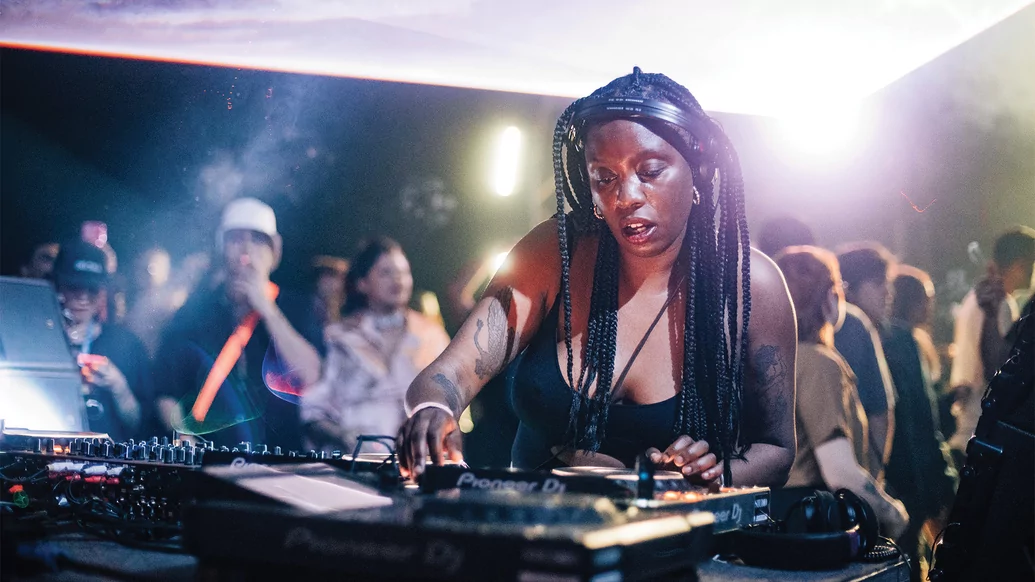
"I like to let my actions speak first, that was my thing and still is, to let people interpret the whole. That’s the same thing with United Identities, I don’t talk too much about it, I just let it happen and promote it when it’s needed.”
‘Carista Presents Modern Intimacy Volume 1’ is a key milestone in the imprint’s story. Released in October 2020, it captured a wonderful breadth of musicianship: cinematic and meditative at times, brukish and bracing at others — all worthy of a CARISTA set. “I had a lot of artists in mind, on my radar,” she tells us, comparing the comp to the Brownswood Bubblers series. She followed up with ‘Volume 2’ two years later, dropping a number of artist EPs in between, including work by techno producer Thrills In +41, multi-instrumentalist QUANZA, EBM experimentalist mayo and Ngoni Egan, a Rotterdam via Dublin and Botswana producer making future-facing electro.
“Ngoni Egan was really researching his roots, where he came from, and I liked the story that he told me, what he wanted to achieve musically. He was making electro in a way that I could deeply connect to. The ‘Re Teng’ EP had a nice sonic palette.” CARISTA was so impressed by Thrills In +41’s output she offered him a sub label, PRIMAL X. “He’s such a nice guy and he makes so much music — I recognise myself also a little bit in him,” she says, noting the contrast between his shy persona and his bolshy productions. United Identities doesn’t release often, but when running through the back catalogue, the once reluctant label head talks lovingly about each release.
CARISTA marked United Identities’ fifth anniversary with a 12-hour party at Amsterdam’s Skatecafe in 2022. It was also the release of ‘Modern Intimacy Volume 2’. “We sold 1,200 tickets, so it felt like a mini-festival across three rooms,” she beams. The label head also commissioned a short documentary to capture the moment — and what’s striking is the range of artistry on display and how non bro-code the whole thing seems. How much of a response has the label been to those early clubbing days? “Now that I look back on it, United Identities is a response, but it wasn’t a conscious thing,” she replies. “I like to let my actions speak first, that was my thing and still is, to let people interpret the whole. That’s the same thing with United Identities, I don’t talk too much about it, I just let it happen and promote it when it’s needed.”
Having graduated to bigger rooms and stages, over the past few years CARISTA has been feeling the pull of longer sets in smaller venues. She launched her all night long tour in 2022 to meet this new need, playing to crowds in London, Paris, Amsterdam, Brussels and Madrid. “I wanted to go back to basics and challenge myself to play longer than usual,” she says. São Paulo was her first all night long set outside Europe, playing for a room of 3,000. “It was an amazing experiment, just to see who my crowd was — there was a real mix, and not just young people!” she says, seemingly relieved.
The DJing world has changed a lot since CARISTA first stepped behind a booth, some of which she’s happy about, some of which makes her yearn for earlier days. “There’s less of an island thing — hip-hoppers hanging out only with hip-hoppers, the punks with the punks — everything is more mixed, and so people mix [the music] a lot more, that’s the main thing,” something that her label/club night has surely played a role in. That said, she does miss the more experimental leanings of the dancefloor. “In the late ‘00s you had Hessle Audio, Joy Orbison, it was for me super exciting. Of course you have some DJs who are coming out of their comfort zone, taking risks, but I want to see people doing it because they really love it and not because they want to make lots of money. It takes a lot to get good at this, it’s really a craft.”
On the other hand, she has been impressed by a new generation of DJs, selectors forging new paths, as well as how hungry people back home still are. “I had this conversation recently with someone — in the Netherlands, there’s still this feeling that you have to prove yourself, you want to be better than the next DJ, so you play your best tunes, you want to elevate. There’s definitely more competition in The Netherlands than I’ve seen anywhere else, people feel like they have to prove themselves as a DJ, there’s more of this hip-hop mentality, which I absolutely love.”
There’s hours to go before Eendragt is due on stage later, so a quick disco nap is looking likely. Her hotel lies just west of us so we part ways. She pats DJ Mag firmly on the upper arm, the way a coach would a new recruit, flashes a final smile, and heads in the direction of her hotel. She doesn’t look back.

